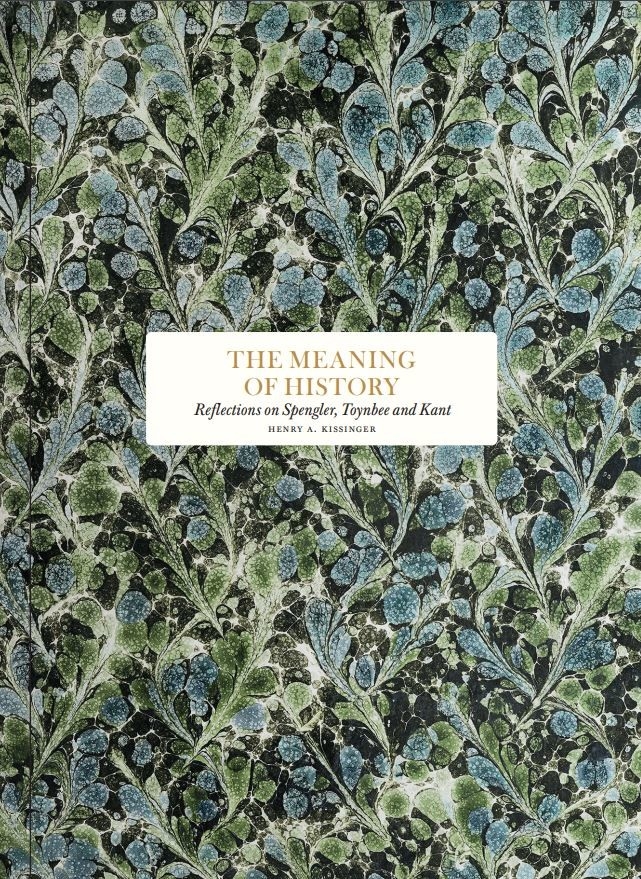Description
The Meaning of History is the senior thesis written by Henry Kissinger at Harvard university in 1950, when he was twenty-seven. More than 70 years later it is now being published for the first time. The thesis explores the thought of three distinct but important thinkers in the canon of Western philosophical and historical thought, in a way that also reflected Kissinger’s own transition from the Continental world to the Atlantic. Oswald Spengler (1880-1936) was a German historian and philosopher; Arnold Toynbee (1889-1975) a British historian and philosopher and Immanuel Kant (1724-1804), a Prussian of the European Enlightenment era and one of the most important moral and political philosophers to emerge from his time.
The study is intimidatingly long and weighty in its own right; at almost four hundred typed pages, it wrestles with some of the first-order dilemmas of Western political, philosophical, and moral thought. Its scope ranges from the Enlightenment through to the midpoint of the twentieth century – an era scourged by two world wars and the advent of the nuclear age. Equally important, it provides great insight into the conceptual perspective of its author, Henry Kissinger, who was to become the most influential American scholar statesman of the post 1945 period.



